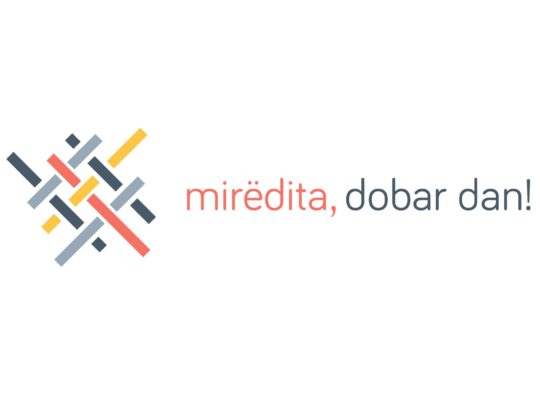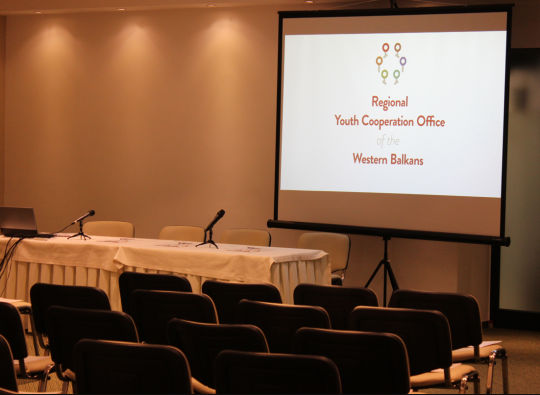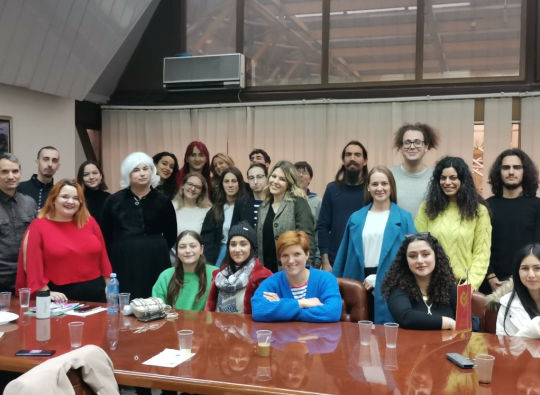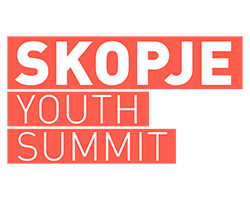This project was developed through the fellowship program Alliance for Historical Dialogue and Accountability of the Institute for the Study of Human Rights at the Columbia University in the City of New York, USA, and is implemented by the Regional Network of Youth Initiative for Human Rights in collaboration with PAX for Peace from the Netherlands with support by the Robert Bosch Foundation from Germany and the European Commission.
The conference gathered around 120 young people from Bosnia and Herzegovina, Croatia, Kosovo, Montenegro and Serbia in Belgrade, Serbia between March 28th and 31st 2018. The working approach of the conference was hands-on participatory, as most of the conference was organized through workshops, discussions and group work. The workshops were facilitated by Maja Nenadović, an experienced trainer, facilitator and debate coach with extensive experience both in youth work and in dealing with the past projects. The workshops were conducted not only in a participant-focused, but also in participant-led manner.
At the openning of the conference, the project coordinator Mario Mažić informed the participants about the planned process both at the conference and in the next year in which they will be working together on research, discussions and narrative-building. He underlined the importance of understanding and taking into account the court findings and court-established facts and the importance of taking into account the perspectives of victims.
The keynote lecture of the conference was provided by philosophy professor and human rights defender Žarko Puhovski on the topic of ‘Truth and Justice in Post-War Societies’. Prof. Puhovski contextualized the values of truth and justice and spoke of numerous examples of varying perceptions. A particular focus in terms of influencing perceptions was places on the technology of nationalism.
An interactive lecture on ‘Constructing Historical Narratives’ was delivered by Marijana Toma, a historian with extensive experience in reconciliation, justice and fact-finding initiatives. She spoke of research design, types of sources, research methodology and about how historical narratives are constucted, but also about how they are manipulated for ideological purposes.
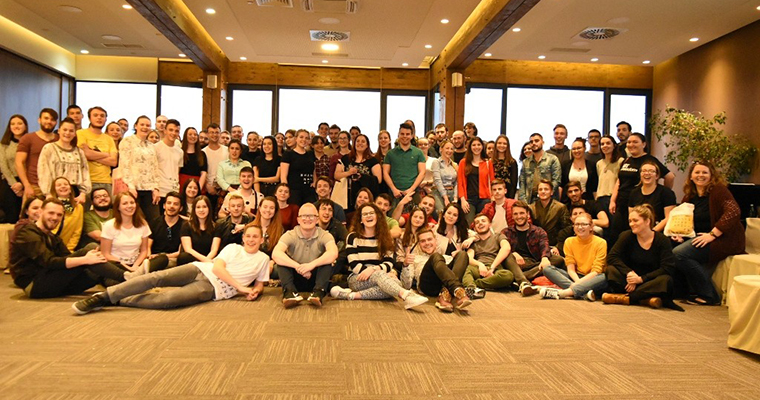
Throughout the conference, the participants worked in groups under facilitation of Maja Nenadović, where they exchanged views and discussed concepts, as well as actual events from recent history. For the last working sessions, the participants chose bilateral groups in which they will be working on research and narratives for the next year. Each of the groups selected several topics that they will be working on. They also decided on locations and timeframe for 2 study-trips they will undertake in groups in the following several months. The topics range from specific instances of crimes (such as crimes committed in Ahmići and Trusina), continuous criminal campaigns (e.g. siege of Sarajevo, battle of Vukovar or ethnic cleansing around Prijedor) to topics such as anti-war protests.


